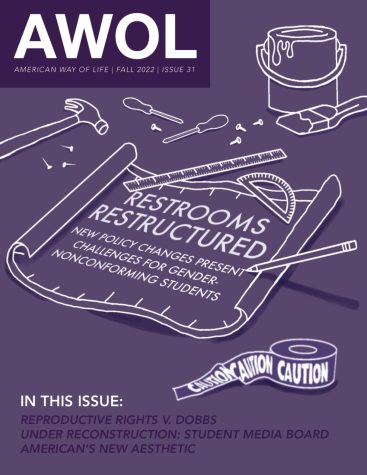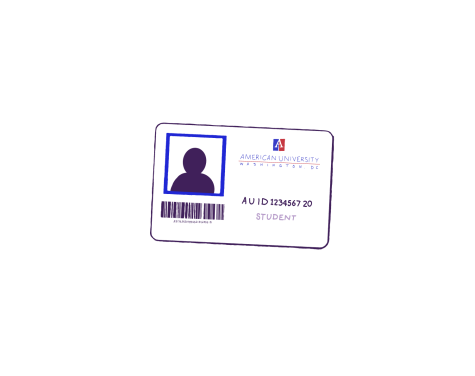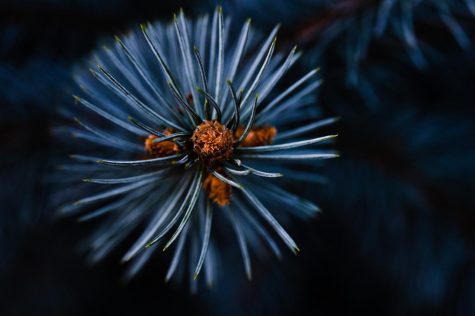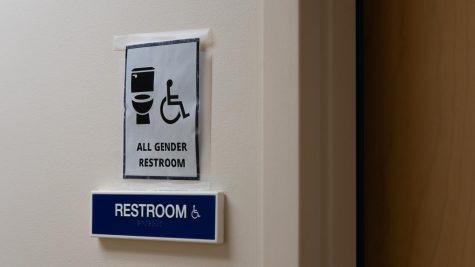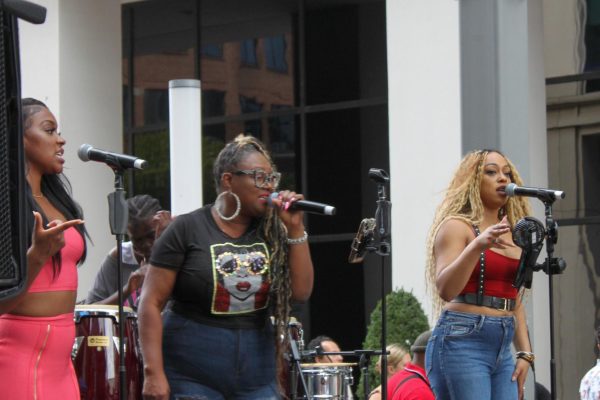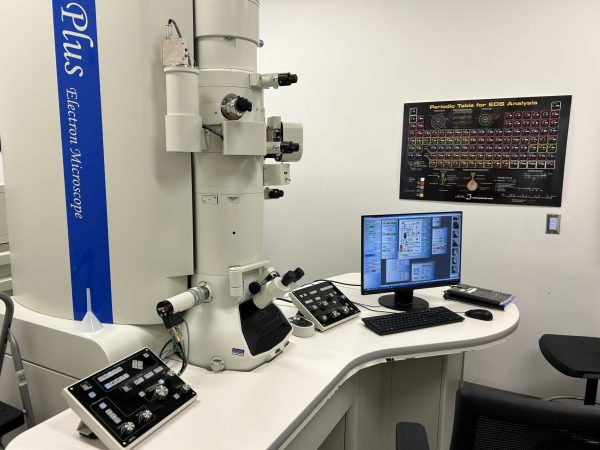A professor profile on Aarushi Sahejpal: from taking exams to grading them
At 22 years old, Aarushi Sahejpal is one of the youngest professors at American University. Sahejpal is teaching Quantitative Methods for Journalists this semester. He recently graduated from AU in the Spring of 2022 with a Bachelor of Science in Data Science and International Studies and is pursuing a master’s degree in Data Science. He worked at The Atlantic’s COVID Tracking Project and now serves in the White House Office of Science and Technology Policy.
Interview edited for length and clarity.
Q: Why did you choose to go to school at AU?
A: My parents are engineers, and I vowed to never be like that. I hated math. And I hated numbers. And I was awful at it. I went to a math enrichment camp too, and like, failed out of it completely. I really loved the world. Like, I was fascinated that there was more out there. I’m a first generation American. My grandma doesn’t speak any English. My parents immigrated here. They got married when they were 22. I basically lived in Little India, like, in a community in San Jose, that was just Indian people. So for me, this concept of being American was just like this interdisciplinary multi world thing. I was fascinated that there was more out there. So I applied to the top 10 International Studies schools. Like literally, there was no qualifier. And then I got to AU and I was like, this makes sense.
Q: How did you become interested in Data Science?
A: I stumbled into numbers. I’m not like a traditional data scientist or mathematician. I tell my students this all the time. I taught myself how to code before I learned it in the classroom. It started when I interned at a small publication during the second semester of my freshman year. While I was there, I created a spreadsheet about testing what colors our readers liked more in one newsletter, and my boss told me I created a dataset. It’s a really, really small thing, but it was super interesting. So then, pivot to my sophomore year, when I was an RA, I would work 27 hours a week at these overnight desk shifts in Anderson Hall. So I was like, “What should I do with my time?” And that’s why I taught myself how to code. I went to data camp, which was free at the time, for an entire year. I literally just taught myself how to code on a computer. Then, slowly I realized it was hard, but the reason it was hard was because I was learning something. So then, that second semester of my sophomore year, I went to AU and asked if there was an undergraduate program for Data Science. There was one in SPA, but it wasn’t really what I wanted to do. No one in the history of AU had double majored in Data Science and International Studies. So I became one of the AU’s first BS in Data Science. All I did was ask. But then, my junior year rolled around, and then we got sent home because of COVID.
Q: Can you describe your work at The Atlantic and how it began?
A: I was sent home for the pandemic. I was completely clueless. I had literally no idea what I was doing with my life. Then, on Twitter, I saw someone post that they were looking for volunteers for something, so I sent in my resume and said I knew how to do basic Excel. I told them I was a Data Science double major. Little did I know, these two people worked at The Atlantic magazine and were creating a spreadsheet to track COVID-19 across the states because the government wasn’t doing it. It was called the COVID Tracking Project. I was one of the first 15 workers. I clocked 16 hours that first day as a volunteer, and they brought me on the day after. I spent a year and a half working on that project. I took time off of school and worked on it full-time for almost two years of my life. I was the deputy lead for long-term care. I managed teams of hundreds of volunteers trying to track the spread of COVID-19 among communities. We were the backbone of The Times, of Johns Hopkins tracker, and multiple states and federal government agencies used our information to determine how to move forward in the pandemic. And I was like, this is pretty cool. I’m helping my country.
Q: How did you become a professor so young?
A: I get asked this question all the time, and I have literally no clue how to answer it. I’m a three-time intern in the Investigative Reporting Workshop at American University. It’s a nonprofit newsroom that’s editorially independent of AU, but we’re on the first floor of the School of Communication. We have interns that come and learn how to be long-form
investigative reporters. I love this place. My mentor, Professor Perri, is here. This place made me believe that I could be a journalist, and I’ve never taken a journalism class in my life. Then, there was this opening, and they thought I would be a good fit to teach quantitative methods. I was thinking about it, and I was like, I spent my entire life thinking there’s this rigid expectation of what academics look like. But in journalism, it could be really, really important to have someone who is reactive to the industry. I am a journalist in real life, but I’m also a civic data scientist. I have experience that could be useful, but also, I know what it’s like to be a student and want to learn, and I thought I could teach a class well, so I threw my hat in the ring.
Q: What are some of your goals for your future work?
A: I think that if having a linear career path is important to you, it’s important to you. For me, I can’t do one thing. I haven’t done one thing. Right now, I’m serving in the White House Office of Science and Technology Policy. I work for the Cabinet member, and I literally work in the highest office in the land. It’s actually freaking absurd sometimes because a kid like me could have never existed in those halls before. I swear to God, I literally walk in those halls, and there’s not a single soul that looks like me. But I know for a fact that my existence in and of itself, in that place, is profound. And that’s why I’m a professor. A kid like me was never meant to be unapologetically myself in front of a classroom. And I think the most gratifying feeling for me is that I am the professor I never had. I often feel I’m very, very obvious on this campus, but I’m unapologetic about my existence. That is the root of me as a human being. I’m not going to not talk about being trans in my class; that’s just who I am. I hope to just forever have a job where I’m true to myself, but I love teaching. I think I will probably teach for a while, but be myself in whatever that means. I’m also young, I’m 22. I don’t know yet.
Q: What’s some advice you have for students at AU going into your field?
A: Have faith in yourself. A lot of journalists these days have imposter syndrome. I think that if you don’t have imposter syndrome, you’re not approaching life right. I walk into my classroom every day, and I’m like, “Am I qualified for this?” But it doesn’t matter because the only person that you need to believe in is yourself.
This article is from AWOL’s 31st print edition.
Emma Pierce is a freshman studying CLEG.



